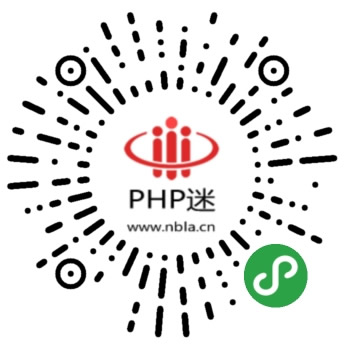MongoDB数据库使用总结
安装mongodb
$ # replace "1.6.4" in the url below with the version you want
$ curl http://downloads.mongodb.org/linux/mongodb-linux-x86_64-1.6.4.tgz > mongo.tgz
$ tar xzf mongo.tgz
$ cd mongo
$./mongod #启动服务器
$./mongo #启动客户端
1.mongodb 命令列表
Mongo查询语法与SQL语法对照表
|
MySQL executable |
Oracle executable |
Mongo executable |
|
mysqld |
oracle |
mongod |
|
mysql |
sqlplus |
mongo |
mongodb查询语法与SQL语法对比
|
SQL Statement |
Mongo Query Language Statement |
C++客户端调用语法 using namespace bson; DBClientConnection c; c.connect("somehost"); |
|
CREATE TABLE USERS (aNumber, b Number) |
db.createCollection("mycoll") |
|
|
INSERT INTO USERS VALUES(1,1) |
db.users.insert({a:1,b:1}) |
// GENOID is optional. if not done by client, server will add an _id c.insert("mydb.users", BSON(GENOID<<"a"<<1<<"b"<<1)); // then optionally: string err = c.getLastError(); |
|
SELECT a,b FROM users |
db.users.find({}, {a:1,b:1}) |
auto_ptr |
|
SELECT * FROM users |
db.users.find() |
auto_ptr |
|
SELECT * FROM users WHERE age=33 |
db.users.find({age:33}) |
auto_ptr // or:
auto_ptr |
|
SELECT a,b FROM users WHERE age=33 |
db.users.find({age:33}, {a:1,b:1}) |
|
|
SELECT * FROM users WHERE age=33 ORDER BY name |
db.users.find({age:33}).sort({name:1}) |
auto_ptr |
|
SELECT * FROM users WHERE age>33 |
db.users.find({'age':{$gt:33}})}) |
|
|
SELECT * FROM users WHERE age<33 |
db.users.find({'age':{$lt:33}})}) |
|
|
SELECT * FROM users WHERE name LIKE "%Joe%" |
db.users.find({name:/Joe/}) |
|
|
SELECT * FROM users WHERE name LIKE "Joe%" |
db.users.find({name:/^Joe/}) |
|
|
SELECT * FROM users WHERE age>33 AND age<=40 |
db.users.find({'age':{$gt:33,$lte:40}})}) |
auto_ptr |
|
SELECT * FROM users ORDER BY name DESC |
db.users.find().sort({name:-1}) |
|
|
SELECT * FROM users WHERE a=1 and b='q' |
db.users.find({a:1,b:'q'}) |
|
|
SELECT * FROM users LIMIT 10 SKIP 20 |
db.users.find().limit(10).skip(20) |
auto_ptr |
|
SELECT * FROM users WHERE a=1 or b=2 |
db.users.find( { $or : [ { a : 1 } , { b : 2 } ] } ) |
|
|
SELECT * FROM users LIMIT 1 |
db.users.findOne() |
bo obj = c.findOne("mydb.users", Query()); |
|
SELECT DISTINCT last_name FROM users |
db.users.distinct('last_name') |
// no helper for distinct in c++ driver, so send command manually bo cmdResult;
bool ok = c.runCommand("mydb",
BSON("distinct"<<"users"<
list
cmdResult["values"].Obj().Vals(results);
|
|
SELECT COUNT(*y) FROM users |
db.users.count() |
|
|
SELECT COUNT(*y) FROM users where AGE > 30 |
db.users.find({age: {'$gt': 30}}).count() |
unsigned long long n = c.count("mydb.users",
QUERY("age:"< |
|
SELECT COUNT(AGE) from users |
db.users.find({age: {'$exists':true}}).count() |
|
|
CREATE INDEX myindexname ON users(name) |
db.users.ensureIndex({name:1}) |
c.ensureIndex("mydb.users", BSON("name"<<1)); |
|
CREATE INDEX myindexname ON users(name,ts DESC) |
db.users.ensureIndex({name:1,ts:-1}) |
|
|
EXPLAIN SELECT * FROM users WHERE z=3 |
db.users.find({z:3}).explain() |
|
|
UPDATE users SET a=1 WHERE b='q' |
db.users.update({b:'q'}, {$set:{a:1}}, false,true) |
|
|
UPDATE users SET a=a+2 WHERE b='q' |
db.users.update({b:'q'}, {$inc:{a:2}}, false,true) |
c.update("mydb.users", QUERY("b"<<"q"),
BSON("$inc"<
// then optionally:
string err = c.getLastError();
bool ok = err.empty();
|
|
DELETE FROM users WHERE z="abc" |
db.users.remove({z:'abc'}); |
c.remove("mydb.users", QUERY("z"<<"abc")); // then optionally: string err = c.getLastError(); |
命令帮助列表:
使用mongo进入交互式客户端:
> help
db.help() help on db methods
db.mycoll.help() help on collection methods
rs.help() help on replica set methods
help admin administrative help
help connect connecting to a db help
help keys key shortcuts
help misc misc things to know
help mr mapreduce
show dbs show database names
show collections show collections in current database
show users show users in current database
show profile show most recent system.profile entries with time >= 1ms
use
db.foo.find() list objects in collection foo
db.foo.find( { a : 1 } ) list objects in foo where a == 1
it result of the last line evaluated; use to further iterate
DBQuery.shellBatchSize = x set default number of items to display on shell
exit quit the mongo shell
> db.help()
DB methods:
db.addUser(username, password[, readOnly=false])
db.auth(username, password)
db.cloneDatabase(fromhost)
db.commandHelp(name) returns the help for the command
db.copyDatabase(fromdb, todb, fromhost)
db.createCollection(name, { size : ..., capped : ..., max : ... } )
db.currentOp() displays the current operation in the db
db.dropDatabase()
db.eval(func, args) run code server-side
db.getCollection(cname) same as db['cname'] or db.cname
db.getCollectionNames()
db.getLastError() - just returns the err msg string
db.getLastErrorObj() - return full status object
db.getMongo() get the server connection object
db.getMongo().setSlaveOk() allow this connection to read from the nonmaster member of a replica pair
db.getName()
db.getPrevError()
db.getProfilingLevel() - deprecated
db.getProfilingStatus() - returns if profiling is on and slow threshold
db.getReplicationInfo()
db.getSiblingDB(name) get the db at the same server as this one
db.isMaster() check replica primary status
db.killOp(opid) kills the current operation in the db
db.listCommands() lists all the db commands
db.printCollectionStats()
db.printReplicationInfo()
db.printSlaveReplicationInfo()
db.printShardingStatus()
db.removeUser(username)
db.repairDatabase()
db.resetError()
db.runCommand(cmdObj) run a database command. if cmdObj is a string, turns it into { cmdObj : 1 }
db.serverStatus()
db.setProfilingLevel(level,
db.shutdownServer()
db.stats()
db.version() current version of the server
db.getMongo().setSlaveOk() allow queries on a replication slave server
db.fsyncLock() flush data to disk and lock server for backups
db.fsyncUnock() unlocks server following a db.fsyncLock()
> db.mycoll.help()
DBCollection help
db.mycoll.find().help() - show DBCursor help
db.mycoll.count()
db.mycoll.dataSize()
db.mycoll.distinct( key ) - eg. db.mycoll.distinct( 'x' )
db.mycoll.drop() drop the collection
db.mycoll.dropIndex(name)
db.mycoll.dropIndexes()
db.mycoll.ensureIndex(keypattern[,options]) - options is an object with these possible fields: name, unique, dropDups
db.mycoll.reIndex()
db.mycoll.find([query],[fields]) - query is an optional query filter. fields is optional set of fields to return.
e.g. db.mycoll.find( {x:77} , {name:1, x:1} )
db.mycoll.find(...).count()
db.mycoll.find(...).limit(n)
db.mycoll.find(...).skip(n)
db.mycoll.find(...).sort(...)
db.mycoll.findOne([query])
db.mycoll.findAndModify( { update : ... , remove : bool [, query: {}, sort: {}, 'new': false] } )
db.mycoll.getDB() get DB object associated with collection
db.mycoll.getIndexes()
db.mycoll.group( { key : ..., initial: ..., reduce : ...[, cond: ...] } )
db.mycoll.mapReduce( mapFunction ,
reduceFunction ,
db.mycoll.remove(query)
db.mycoll.renameCollection( newName
,
db.mycoll.runCommand( name ,
db.mycoll.save(obj)
db.mycoll.stats()
db.mycoll.storageSize() - includes free space allocated to this collection
db.mycoll.totalIndexSize() - size in bytes of all the indexes
db.mycoll.totalSize() - storage allocated for all data and indexes
db.mycoll.update(query, object[, upsert_bool, multi_bool])
db.mycoll.validate(
db.mycoll.getShardVersion() - only for use with sharding
> db.users.find() #users是collection的名称
{ "_id" : ObjectId("4de71d5faf575684b391b8db"), "a" : 1, "b" : 1 }
> show dbs
admin (empty)
local (empty)
test 0.203125GB
> show collections
mycoll
system.indexes
testCollection
users
>
java端调用
1到https://github.com/mongodb/mongo-java-driver/downloads 下载java客户端需要的jar,引入工程里面,
2.
package com.alibaba.asc.demoLearnCenter.mongo;
import java.net.UnknownHostException;
import java.util.Set;
import com.mongodb.BasicDBObject;
import com.mongodb.DB;
import com.mongodb.DBCollection;
import com.mongodb.DBCursor;
import com.mongodb.Mongo;
import com.mongodb.MongoException;
public class MongoDemo1 {
public static void main(String[] args) throws UnknownHostException, MongoException {
Mongo m = new Mongo("10.20.150.205", 27017);
DB db = m.getDB("test");
Set
for (String s : colls) {
System.out.println(s);
}
DBCollection coll = db.getCollection("testCol");
BasicDBObject doc = new BasicDBObject();
doc.put("name", "MongoDB");
doc.put("type", "database");
doc.put("count", 1);
BasicDBObject info = new BasicDBObject();
info.put("x", 203);
info.put("y", 102);
doc.put("info", info);
coll.insert(doc);
System.out.println(coll.getCount());
DBCursor cur = coll.find();
while(cur.hasNext()) {
System.out.println(cur.next());
}
BasicDBObject query = new BasicDBObject();
query.put("type", "database");
cur = coll.find(query);
while(cur.hasNext()) {
System.out.println(cur.next());
}
}
}
输出:
mycoll
system.indexes
testCollection
users
1
{ "_id" : { "$oid" : "4de72c04a1f3a9ef7fc0c750"} , "name" : "MongoDB" , "type" : "database" , "count" : 1 , "info" : { "x" : 203 , "y" : 102}}
{ "_id" : { "$oid" : "4de72c04a1f3a9ef7fc0c750"} , "name" : "MongoDB" , "type" : "database" , "count" : 1 , "info" : { "x" : 203 , "y" : 102}}
MongoDB数据库使用总结



